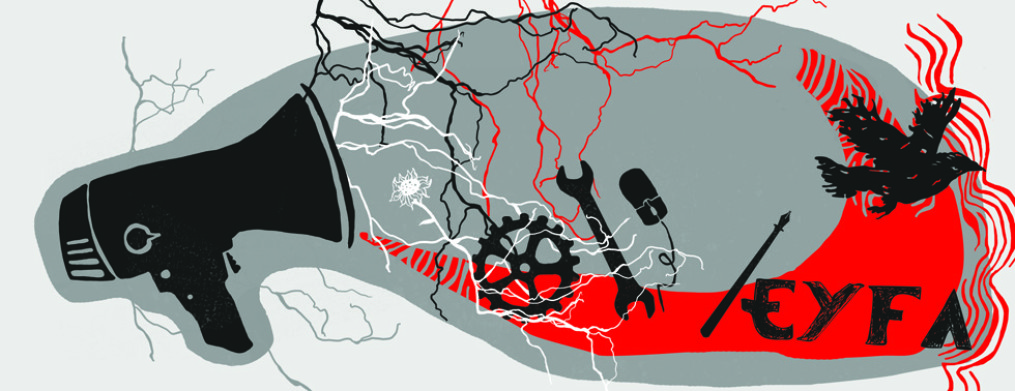From 1989-2008 EYFA organised the annual summer camp ‘Ecotopia.’ Ecotopia aimed to be an international gathering of mostly young people from all over Europe, involved or interested in environmental and social justice issues. EYFA decided in 2008 that EYFA and Ecotopia should separate, because the camp no longer reflected EYFA’s focus. EYFA wished to focus specifically on facilitating political gatherings and action camps, directly related and part of current social movements.
Whilst EYFA continued organising a camp on environmental issues almost every summer, the name Ecotopia was dropped. In light of the current climate crisis it was felt that the connotation of ‘utopia’ and dreaming of some ideal society might distract people from the fact that we need action and real change now. Instead, the name of the camp changes each year, stemming from ideas and collaborations between EYFA and local organisers.
Ideas and offers of future collaboration are still very welcome, so please get in touch if you would like to be involved. EYFA is particularly interested in working in countries where there is a lack of activist infrastructure, thus giving a boost to the local activist community and local environmental issues. We also like our camps to work as a hub for networking, especially in building links between eastern and western European activists. As always, camps are DIY, horizontally run, and self-managed events.
What was Ecotopia?
Ecotopia was an international gathering of young people from all over Europe involved or interested in environmental and social justice issues. Ecotopia took place every summer from 1989-2008, each year in a different country. Each year it was organised by EYFA and a local grassroots environmental organisation as host organisation.
Ecotopia was a place for learning, exchanging experiences and spreading information about environmental, social, political and other issues. Around 200 – 600 people attended Ecotopia each year, to share skills and discuss about a wide range of themes related to environmental problems: climate change, transport and mobility, GMOs, organic food, eco-building and sustainable infrastructure, global politics and global economic system, strategies for actions, experiences of campaigns, alternative media, migration, racism and xenophobia, cultural issues…
Ecotopia was also a functional model of self-sustainable community that put into practice the principles of an environmentally friendly way of life: waste recycling, vegetarian kitchen, consensus decision-making, the use of alternative energy… Ecotopians participated in regional actions and clean ups, trying to get local people interested in ecological problems and empowering local organizations.
Ecotopia operated on the Ecorates system – an alternative economic system based on living standards and income of people rather than financial markets, which meant that what you paid for food at Ecotopia was approximately the same as you would pay for it in your own country.
Because of the negative environmental effects of air travel (air pollution, greenhouse gas emissions, damage of the ozone layer, etc.), EYFA therefore supported one of the best ways to come to Ecotopia: the Ecotopia Biketour.
When and Where?
2007 – Portugal
2006 – Slovakia
2005 – Moldova
2004 – Netherlands
2003 – Ukraine
2002 – Ireland
2000 – Finland
1999 – Romania
1998 – Germany
1997 – Scotland
1996 – Czech Republic
1995 – Poland
1993 – France
1992 – Bulgaria
1991 – Estonia
1990 – Hungary
1989 – Germany
